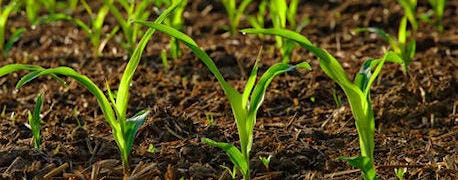December 13, 2013

Following a two-year investigation, a Chinese national on Thursday was arrested for conspiracy to steal trade secrets from the U.S., specifically parent lines of seed corn from at least two American seed companies.
United States Attorney for the Southern District of Iowa Nicholas Klinefeldt announced the arrest of the suspect, Mo Hailong, also known as Robert Mo last week. Klinefeldt alleged that between September 2011 and October 2012, Mo and other individuals conspired to steal trade secrets and transport those trade secrets to China for the benefit of their China-based seed company.
The parent lines Mo allegedly stole are valuable intellectual property of the producers.

Three Chinese men charged with conspiracy to steal trade secrets from the U.S. in two incidents
Dupont Pioneer, which first alerted the Federal Bureau of Investigation to the suspicious activity in a test plot, is cooperating with the investigation. Klinefeldt said Monsanto is also cooperating with authorities.
Hailong, a Chinese national who became a Lawful Permanent Resident in the U.S., is employed as the Director of International Business of the Beijing Dabeinong Technology Group Company, which is part of DBN Group.
DBN Group is believed to be a Chinese conglomerate with a corn seed subsidiary company, Kings Nower Seed, the States Attorney said.
Kansas company also targeted
In a separate case also announced Thursday, two agricultural scientists from China have been charged with trying to steal samples of a variety of seeds from a biopharmaceutical company's research facility in Kansas.
Weiqiang Zhang, 47, Manhattan, Kan., and Wengui Yan, 63, Stuttgart, Ark., are each charged with one count of conspiracy to steal trade secrets.
Though the company in question has not been named, a statement from U.S. Attorney for the District of Kansas Barry Grissom indicated that the company has invested approximately $75 million in patented technology "to create a variety of seeds containing recombinant proteins."
~~~PAGE_BREAK_HERE~~~
The company has an extensive intellectual property portfolio of more than 100 issued and pending patents and exclusive licenses to issued patents, the statement said.
According to an affidavit in support of the complaint against Zhang and Yan, on Aug. 7, 2013, agents of U.S. Customs and Border Protection found stolen seeds in the luggage of a group of visitors from China preparing to board a plane to return home.
While in the United States, the group had visited various agricultural facilities and universities in the Midwest, as well as the Dale Bumpers National Rice Research Center in Stuttgart, Ark.
The complaint also indicates that Zhang worked for the company in question since 2008. Stolen seeds were delivered to members of the Chinese delegation during the delegation's visit to the United States July 16 through August 7, 2013.
Yan, who worked for the USDA as a rice geneticist at the Dale Bumpers National Rice Research Center, picked up the Chinese delegation from a motel in Stuttgart, Ark., on July 22, 2013, and took them to the center. Seeds similar to what were found in the delegation's possession as they left the United States in August 2013, were also found in Zhang's residence on December 11, 2013, the complaint said.
If convicted, Zhang and Yan face a maximum penalty of 10 years in federal prison and a fine up to $250,000.
American Seed Trade Association President Andrew LaVigne Friday said the ASTA is "deeply concerned" by the arrest of individuals conspiring to steal trade secrets.
"ASTA has long supported innovation in the U.S. seed and agriculture industry, and the protection of intellectual property rights for these inventions and their inventors," LaVigne noted.
"We are extremely pleased to see that the matter at hand is being taken seriously by the U.S. government. The swift action sends the message that no matter the nationality, either domestic or international, this practice is unacceptable."
You May Also Like




